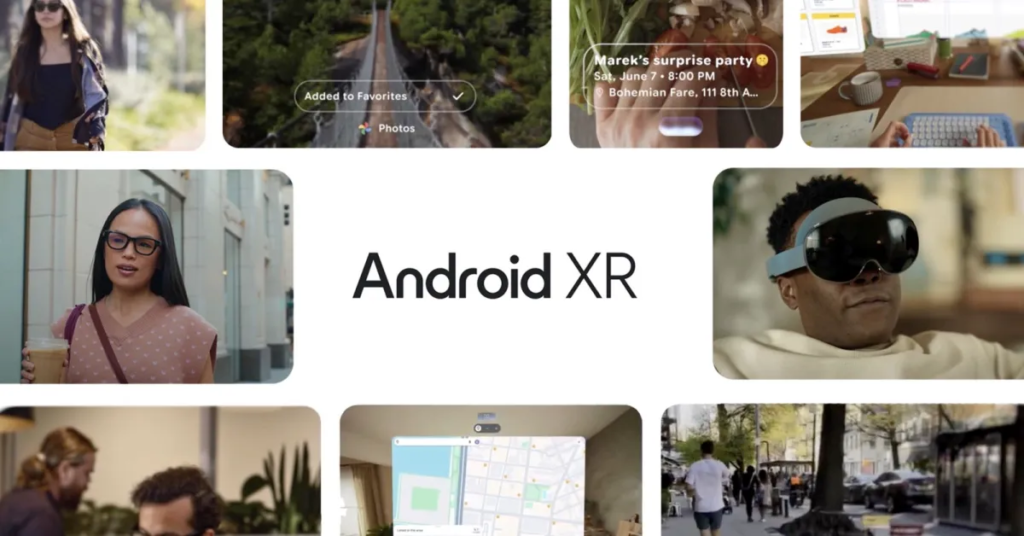At the annual Google I/O 2025 event, the tech giant made some major announcements that promise to reshape the future of mobile technology, artificial intelligence, and extended reality (XR). With an impressive showcase, Google introduced enhancements to its Gemini AI models, previewed Android 16, and launched a brand-new XR smart-glasses platform. These updates bring exciting innovations to both developers and consumers.
The event focused heavily on the integration of AI into daily tools, the expansion of immersive technologies like augmented reality (AR) and virtual reality (VR), and the evolution of Android for a smarter, safer, and more connected future.
Gemini AI Gets Smarter, Faster, and More Context-Aware
Google’s Gemini AI platform took center stage at I/O 2025. According to Google, the latest Gemini 2.5 upgrade improves response quality, speed, and multi-modal understanding. Gemini now better integrates voice, vision, and text, making interactions more human-like and accurate.

These improvements allow developers to build smarter apps using Gemini APIs and tools now integrated into Google’s core products such as Search, Gmail, and Docs. Gemini is also coming to Android 16 with deeper OS-level support. Users will be able to interact with Gemini for writing help, summarizing messages, real-time suggestions, and even live screen assistance.
Read more on Gemini AI tools here: https://deepmind.google/technologies/gemini
Gemini Nano, the lightweight version, has also been optimized for on-device performance, reducing data usage while enhancing privacy. Google confirmed that Gemini Nano will be pre-installed in future Pixel and Android flagship devices.
Android 16 Preview: Privacy, Productivity, and Personalization
Google previewed Android 16, focusing on smarter personalization, better performance, and improved security. The new update introduces context-aware app suggestions, enhanced battery optimization, and more control over user data and permissions.
One of the standout features is AI-powered Live Translate, which can now automatically translate phone calls, messages, and audio in real time across languages. A new Private Space lets users hide apps and files with biometric access.
Android 16 will also feature tighter integration with Gemini AI, including smart auto-replies in messaging apps, task suggestions, and real-time writing enhancement tools for email and documents.
Learn about Android 16 features: https://developer.android.com/about/versions/16
Developers will appreciate the new AI sandbox environment, where they can test machine learning models directly on Android 16 devices with fewer permissions and lower risk. Beta versions are now available for Pixel devices, and the final release is expected later in 2025.
Google’s XR Smart Glasses: A Leap into Augmented Reality
Another highlight from the I/O keynote was the introduction of Google’s new XR smart-glasses platform, designed to support next-gen AR and VR applications. Built with Qualcomm’s Snapdragon XR2 Gen 3, these smart glasses offer real-time 3D calling, immersive gaming, and interactive learning experiences.

The platform introduces Project Astra, a new AI vision system that lets users interact with real-world objects through voice and visual inputs. In a demo, a user asked Astra to explain a math problem just by pointing the glasses at a whiteboard—and got a spoken explanation instantly.
Learn more about XR developments at Google: https://blog.google/technology/research/project-astra/
Google is working closely with partners like Samsung, Lenovo, and Snap to bring these glasses to market, with developer kits available by the end of 2025. The company also emphasized support for OpenXR standards, making development easier across multiple platforms.
3D Calling: Face-to-Face in Virtual Space
One of the most futuristic features introduced at I/O 2025 is 3D calling—a feature designed to bring face-to-face communication into virtual environments. Through its new XR platform, Google showed how users can appear as realistic 3D holograms during video calls using smart glasses or compatible VR headsets.
This feature blends depth mapping, AI rendering, and real-time syncing to create life-like interactions, offering a big improvement over flat video chats. Whether for remote work, education, or gaming, 3D calling could redefine how people connect in digital spaces.
This tool is expected to integrate with Google Meet in early 2026, offering a beta version for developers to start building custom AR calling apps now.
AI and AR: Google’s Vision for the Future
The announcements at Google I/O clearly show the company’s strong focus on merging AI and AR/VR technologies. With Gemini at the core, Android 16 ready to power smarter devices, and a fully open XR platform, Google is aiming to set the standard for the next generation of computing.
By offering developers more flexibility, privacy, and intelligent features, Google hopes to encourage rapid innovation in mobile, web, and immersive technologies.
Explore more on Google I/O announcements: https://io.google/2025
With its strong emphasis on open standards, ethical AI, and developer support, Google is laying the groundwork for a more intelligent and immersive digital world.
Final Thoughts
Google I/O 2025 was packed with exciting news for developers, tech enthusiasts, and businesses. From Gemini AI upgrades to the XR smart-glasses platform and Android 16 preview, the event showcased how AI and immersive technologies are coming together to shape a connected future.
As these tools roll out in the coming months, users can expect smarter apps, deeper personalization, and entirely new ways to experience the world—both digitally and in reality.
Also Read – Gemini Cloud Assist Unleashes Incredible AI Power for Cloud Lifecycle Success






